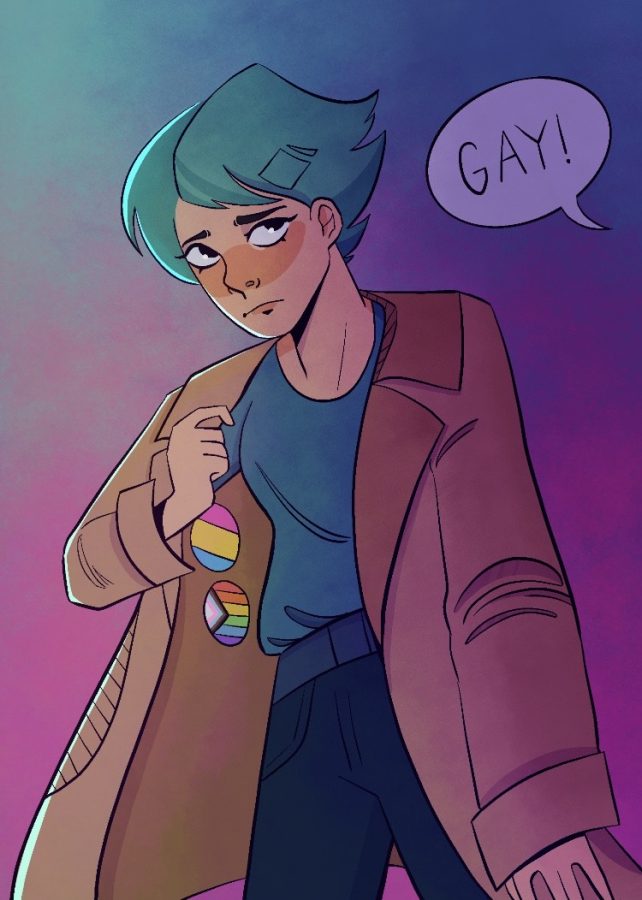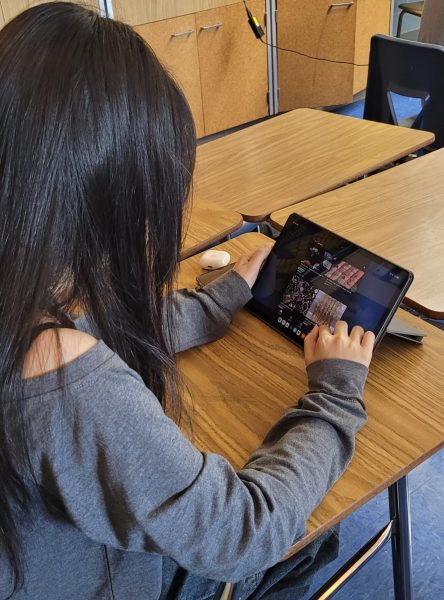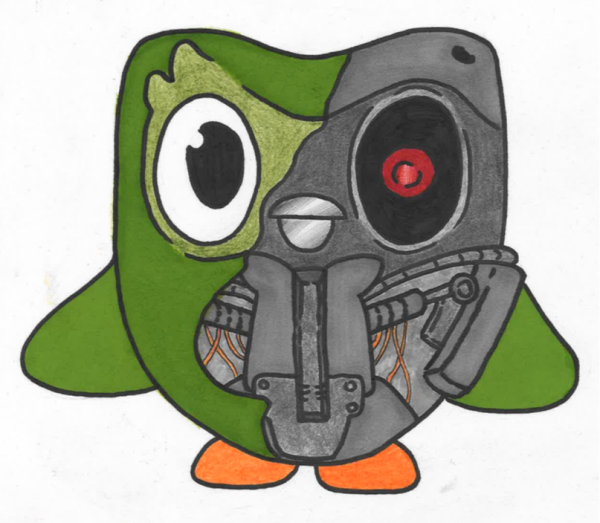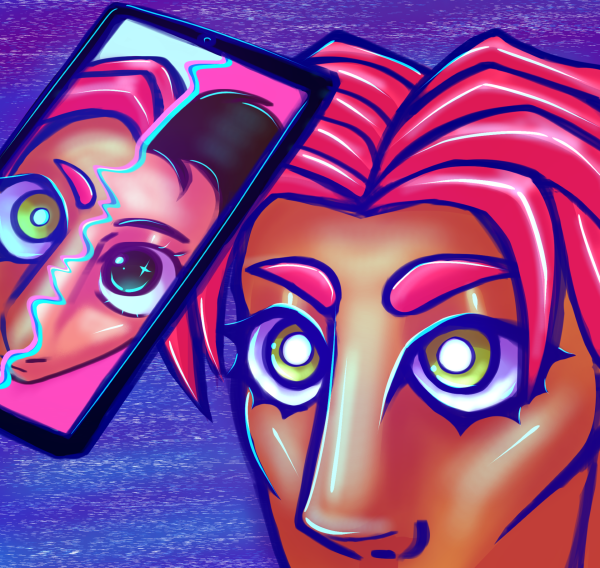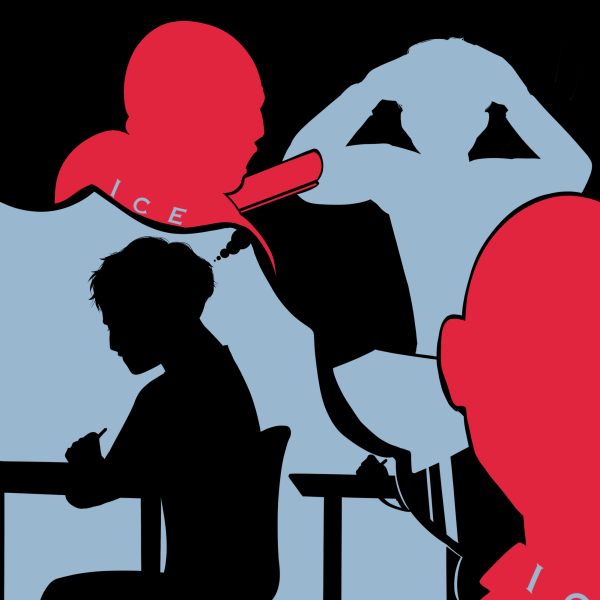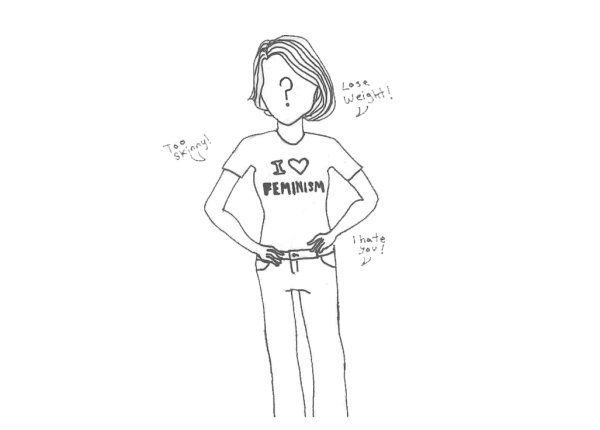Homophobia at CHHS causes stress for students
Some LGBTQ+ students at CHHS may remain in the closet due to the rampant homophobia heard in school hallways and outside of schools alike.
Homophobia. It’s already a tricky topic for some people, especially students that knowingly or unknowingly participate in activities that harm the LGBTQ+ community, saying side comments in class or in the hallways. If you listen carefully like I have, ever since I came back to in-person school, I’ve noticed it’s been happening a lot, and it honestly shocks me. People like me, whether they are gay, lesbian, bisexual or transgender, shouldn’t have to sacrifice safety and a comfortable environment in order to succeed in school.
According to a 2020 report from the Gay, Lesbian, & Straight Education Network, “Just under 99% of lesbian, gay, bisexual, or transgender students between 13 and 21 reported hearing disparaging comments about their sexuality or gender identity.” Of those students, nearly 92% claimed the comments led to feelings of distress. A Gallup poll also recently concluded that the percentage of 15 to 17-year-olds who identify as non-heterosexual is now about 11.7% students, but it still breaks my heart when I see almost 100% of LGBTQ+ teens hear degrading comments about their sexuality or gender identity at Columbia Heights High School (CHHS), and I’m one of these people.
For example, one day I was working and catching up with missing work for different classes I was falling behind in. My tablemates were on a FaceTime call with another student. Out of nowhere, one says, “She told me to tell you you’re a faggot.” The other guy was getting very defensive and at that point on, they were basically calling each other “gay” or the f-slur and saying things like “Don’t touch me, that’s gay.” I knew they were saying it in an offensive way because they were using it to insult each other. I was honestly surprised because they were saying it pretty loudly, but it seemed like none of the other nearby students noticed or cared.
Some may wonder if I can really get upset when myself and others in the LGBTQ+ community say it ourselves. If I say it to my sibling, who is also a member of said community, we are re-appropriating the term and taking it back from oppressors, but when it’s a straight cisgender person calling me the f-slur, they’re not joking — they mean it. Plus, they aren’t the ones who are discriminated against by that word. They aren’t the ones who are truly affected by it. They are the ones who use it against us and to bring us down and make us think we’re just some strange creature or predator.
These people call others the f-slur because they see something that they are doing that looks less masculine, like giving a hug or showing emotion. It makes me so annoyed whenever someone laughs about it like that word doesn’t have roots in bigotry. The LGBTQ+ community is slowly reclaiming that word again so that it isn’t used for hate anymore, but it’s so ubiquitous with high school boys and any other high schooler that doesn’t understand the true meaning. Or perhaps they do and just want to use it to discriminate against us.
Why is the word “gay” such an insult anyway? It just describes a homosexual man—nothing more and nothing less. Similarly, slurs for lesbians (like “dyke”) and transgender people (like “tranny”) are still prevalent as well. These words are meant to be offensive and to make fun of groups of people.
Or maybe, just maybe, the people who call someone the f-slur are secretly and super insecure about themselves and have to demean others in order to feel good and better than the people they bully.
Luckily, in Columbia Heights High School, there is a defined safe space for people who are a part of the LGBTQ+ community, whether you fall under a different sexuality or gender identity and/or expression than the majority: the Gender Sexuality Alliance, otherwise known as GSA. Even allies attend, and we all come together in social studies teacher Mr. Mike Prellwitz’s room, Room 197, to hang out, have fun and talk about gender and sexuality issues in society or in school, as well as how to make it better for the students and others here at CHHS. Any student or staff can give an update or share news, whether positive or negative, and some even talk about what they have been struggling with or have been faced with within our very own school.
How is it that we are inclusive with members of the LGBTQ+ community and have a dedicated club but still face very real problems? The words being said, either directly to the person or just to their other friends, continue to go either unnoticed by staff and administration or are not dealt with due to a lack of protocol. Should side comments making fun of people’s gender or sexuality not be called out? Or should the person who said it be let off the hook, allowing them to continue saying it? Of course not—we should hold them accountable.
But that’s the problem. Until it’s actually bullying and harassment directly to a person from the LGBTQ+ community, few people seem to care or take action. I have never seen anyone get held accountable when someone at CHHS calls someone else the f-slur. Sure, there have been attempts, but the perpetrator almost always tries to shut down the accusation by claiming their use of the word was “just a joke” and that the complainant is being a “sensitive snowflake.” This is the same pathetic excuse used whenever someone using homophobic language doesn’t want to deal with the consequences of their actions.
Another day, I heard someone say “Don’t be such a faggot” out loud and other students just started laughing — laughing at “jokingly” calling someone the f-slur like it’s just some kind of joke. Another time, two students were calling each other “fags” back and forth, as if it were a joke. I’m just surprised how much it’s used, especially in a school setting. If they aren’t reprimanded because of their words, they’ll never learn — they won’t; they need to be held accountable for their actions, and we should all try and make an effort to make everyone comfortable and freely express themselves and their gender and/or sexuality without hearing those words being used around them.
Fortunately, some staff have actively called out bad behavior and foul language they overhear. Ms. Carrie Smith, who teaches theater and dance here at CHHS, is one that tries to remain vigilant.
“It can be a stereotype that in Theater and Dance that men who like these classes are called ‘gay,’” Smith said. “I have heard that ‘it’s gay to want or just be a male dancer.’ I’m trying to break it and accept everyone regardless of gender and sexuality in my class and try to call out those people who make homophobic remarks like that.”
In the end, students of all genders and sexualities, including myself, should feel safe and comfortable in school, but since there is so much focus on when it gets so extreme that it’s considered bullying or harassment, we don’t focus on the smaller acts of microaggressions and stereotyping. Yes, I can’t stop everyone or change everyone’s mind in a day, but people should understand how words can have an impact in our school environment and how it can make others feel unsafe and uncomfortable.
Slurs and harmful words should have consequences in school, right? I might be wrong, though, since I still hear someone using the f-slur or “gay” as an insult almost every day. Maybe I really am just a sensitive snowflake.
Correction: A previous version of this story was published in error on December 21. This is the fully revised edit.
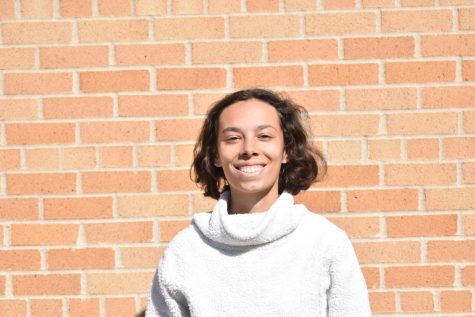
Louise Skokan is one of the funniest and most controversial staff members for The Heights Herald, currently serving as the one and only Opinion Editor....


